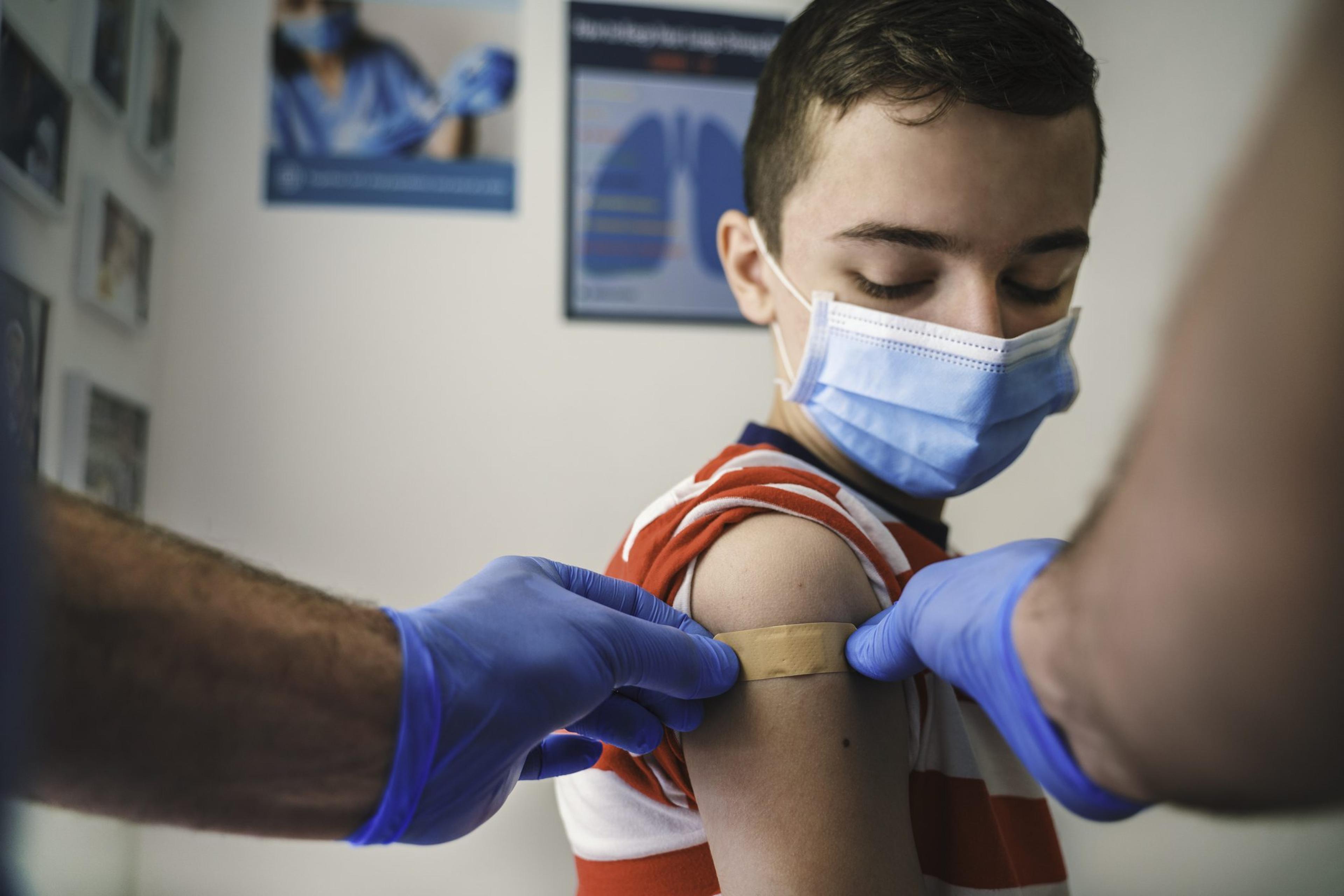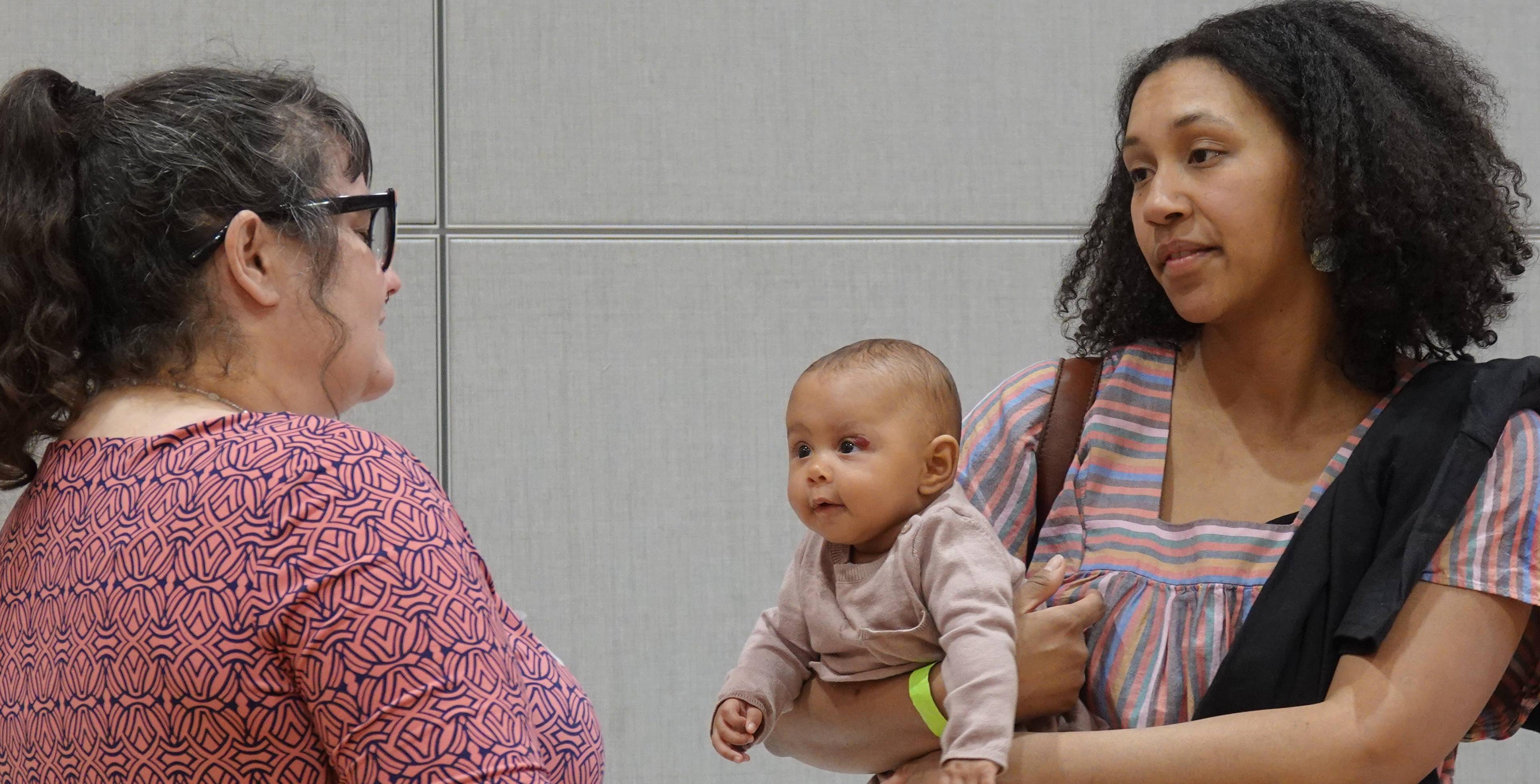Answering Your Questions: The COVID-19 Vaccine for Kids Ages 5 -11

Dr. James Grant
| 5 min read
James D. Grant, M.D. is senior vice president and ch...

The U. S. Food and Drug Administration has granted emergency use authorization for the Pfizer/BioNTech COVID-19 vaccine to be given to those aged 5 years old to 11 years old. It comes after many months of additional studies on safety and efficacy for this age group. The U.S. Centers for Disease Control and Prevention recommends children age 5 to 11 receive the Pfizer COVID-19 vaccine. Many parents are unsure about the COVID-19 vaccine, and it’s no wonder. For more than a year, we have been inundated with news stories, social posts and conversations about the COVID-19 vaccine. It’s difficult to keep up with the latest information, and to know which sources are reliable. Here are some answers to questions you may find yourself asking as you consider the vaccine for your child or seek to be more informed.
What is the main difference between the COVID-19 vaccine for people over age 12 years old and the one for kids aged 5 – 11 years old?
The main difference is the dosage – the amount of vaccine in each shot. It is important to note that the components, or ingredients, of the vaccine are the same whether it’s for someone under 12 or over 12. This has been well studied and proven safe. But those aged 5 – 11 will get a 10-microgram dose of vaccine, rather than a 30-microgram dose for those aged 12 and over. The Pfizer/BioNTech trial found that this dose was well tolerated and generated a strong immune response among trial participants.
What about kids who are right on the cusp, between age 11 and 12? Should their vaccine dose depend on how much they weigh or how tall they are?
Based on the trial, the recommendation is the 10-microgram dose for those aged 5 – 11 and the 30-microgram dose for those aged 12 and up. Talk with your doctor if you have concerns about a child who may be near the edge of the two guidelines.
How was the vaccine tested in kids aged 5 – 11?
Trials for kids aged 5 – 11 occurred after the initial vaccine trials established the safety and efficacy of the vaccine. Those initial trials included tens of thousands of people and led to the FDA emergency use authorization in December 2020 for people 16 and over, and emergency use authorization in May 2021 for people aged 12 - 15. Additional trials were conducted with more than 2,200 volunteers aged 5 – 11. These trials looked not only at safety and potential side effects, but they also reviewed what amount of vaccine would be best in younger, smaller humans. The research was “blinded,” so the participants didn’t know if they were getting the vaccine or a placebo. Researchers tracked any side effects and tested the efficacy of the vaccine through blood tests that look for appropriate immune markers one month after the second dose.
How do we know the COVID-19 vaccine is really safe for kids?
The FDA does not grant any authorization unless the vaccine meets thorough clinical and safety criteria. Based on all the trials done to date and based on real-world data after more than 6 billion doses have been administered worldwide, we know the vaccine itself is safe and effective for humans. The most recent trials on children aged 5 – 11 tested the safety and efficacy of the vaccine dose – the amount of vaccine for each shot. The Pfizer/BioNTech trial found that the 10-microgram dose produced a strong immune response. It also found that the vaccines were well tolerated, and when side effects occurred, they were similar to those seen in people aged 16 – 25.
Will the side effects harm my children or have a long-term impact on their health?
Children in the trial experienced the same side effects as adults. They may have a sore arm or redness at the injection site. They may feel tired, have chills, a fever, a stomachache or a headache. Many feel no side effects. Side effects usually resolve in a day or two. Like any medication or vaccine, an allergic reaction causing anaphylaxis could occur, although this is extremely rare. This is why anyone receiving a COVID-19 vaccine is asked to sit for 15 minutes after receiving the shot. It allows clinical professionals to monitor patients and quickly respond if needed. Myocarditis – inflammation of the heart muscle – has been reported in some teenagers and young adults. In most cases, symptoms begin within a few days after receiving the shot. There are not any more cases than would be expected in the population under regular circumstances, and it is not clear if the cases are caused by the vaccine.
Will the COVID-19 vaccine cause my child to develop COVID-19, or interfere with my child’s DNA?
No. First, the vaccine does not contain a live virus. Pfizer’s COVID-19 vaccine is an mRNA vaccine. This sounds similar to DNA, but it’s quite different. The mRNA triggers cells to make a spike protein. That spike protein then creates antibodies that help the body fight off future COVID-19 infection. The mRNA does not enter the nucleus of the cell, which is where DNA is contained.
My child is due for other vaccines too. Can my child receive a COVID-19 vaccine at the same time as other scheduled vaccines?
Yes. The CDC updated its guidance to allow co-administration of the COVID-19 vaccine along with other scheduled vaccines. If you have additional questions about the COVID-19 vaccine for children or teens, talk with your child’s doctor. MI Blues Perspectives will continue to keep you updated on COVID-19 vaccines as information becomes available. James D. Grant, M.D., is chief medical officer at Blue Cross Blue Shield of Michigan. More from MIBluesPerspesctives:
- COVID Booster Shot: Frequently Asked Questions
- Fall Flu Forecast: What to Know About the Upcoming Influenza Season
- Safety Net Clinics Serve as the Backbone of the Pandemic Response
Photo credit: Getty Images





